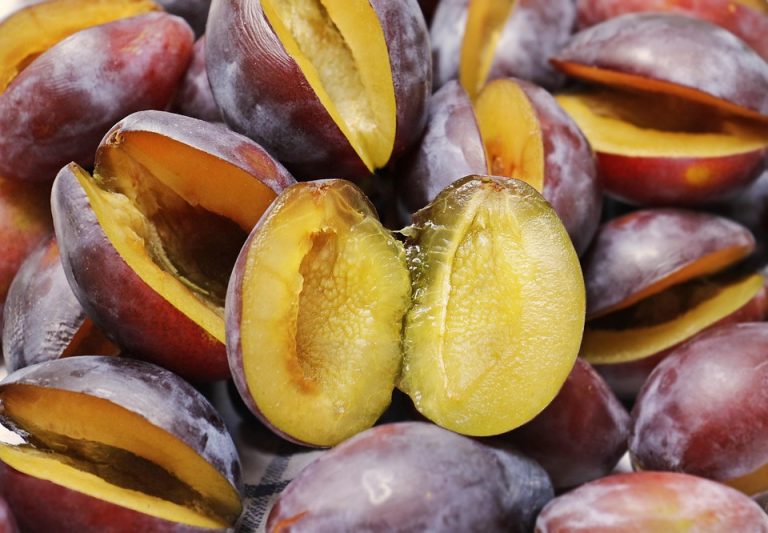Contents
- Understanding Digestive Health
- 1. Fermented Foods: The Gut’s Best Friend
- 2. Chia Seeds: Tiny Nutritional Powerhouses
- 3. Bone Broth: A Nutrient-Rich Elixir
- 4. Avocados: Creamy Goodness for Your Gut
- 5. Papaya: Nature’s Digestive Enzyme
- 6. Oats: The Breakfast Champion
- 7. Garlic: A Flavorful Digestive Aid
- The Science Behind Digestive Health
- Bottom Line
7 Surprising Foods That Boost Your Digestive Health is more than just a catchy title; it’s a direct invitation to transform your well-being. If you’ve ever felt bloated, sluggish, or uncomfortable after a meal, you’re not alone. Your digestive health is crucial to your overall wellness, and what you eat plays a pivotal role. Let’s explore seven unexpected foods that can elevate your digestive experience, making every meal a pleasure rather than a chore.
Understanding Digestive Health
Digestive health encompasses the well-being of your entire gastrointestinal (GI) tract. This includes everything from your mouth down to your intestines. When your digestive system is functioning well, you’ll notice increased energy, better nutrient absorption, and a more positive mood. On the flip side, poor digestive health can lead to a slew of uncomfortable symptoms like gas, bloating, and even gastrointestinal diseases.
Good digestion doesn’t just happen; it requires a little help from the right foods. Enter the heroes of this story: surprising foods that can boost your digestive health in ways you might not expect.
1. Fermented Foods: The Gut’s Best Friend
Fermented foods are like magic for your gut. They’re rich in probiotics, the friendly bacteria that keep your digestive system running smoothly. Think yogurt, kefir, sauerkraut, and kimchi. Each bite is teeming with beneficial microorganisms.
- Why it works: Fermented foods can restore the balance of gut bacteria, helping with everything from digestion to mood regulation.
- Tip: Look for products labeled “live and active cultures” to ensure you’re getting the full benefits.
2. Chia Seeds: Tiny Nutritional Powerhouses
These tiny seeds are often overlooked, but they pack a serious punch. Chia seeds are loaded with fiber, which can help keep things moving along in your digestive tract. Just a couple of tablespoons can provide a substantial portion of your daily fiber needs.
- Why it works: When soaked in liquid, chia seeds expand and create a gel-like consistency, which aids in digestion and helps prevent constipation.
- Tip: Sprinkle them on your morning oatmeal or blend them into a smoothie for an easy health boost.
3. Bone Broth: A Nutrient-Rich Elixir
Bone broth has made a comeback for a reason. This savory liquid is packed with collagen, amino acids, and minerals that can help heal and seal your gut lining.
- Why it works: A healthy gut lining is essential for digestion and nutrient absorption. Bone broth can help reduce inflammation and promote gut health.
- Tip: Sip it warm or use it as a base for soups and stews.
4. Avocados: Creamy Goodness for Your Gut
Avocados aren’t just a trendy toast topping; they’re also fantastic for your digestive health. Rich in healthy fats and fiber, avocados can help keep you full while promoting regularity.
- Why it works: The fiber in avocados helps feed the beneficial bacteria in your gut, ensuring a healthy microbiome.
- Tip: Mash them into guacamole or toss them into salads for a creamy texture.
5. Papaya: Nature’s Digestive Enzyme
Papaya is often underrated, but this tropical fruit contains an enzyme called papain, which aids in breaking down proteins. This makes it a fantastic ally for anyone struggling with digestion.
- Why it works: Papain can relieve bloating and discomfort after heavy meals, making it a perfect post-dinner treat.
- Tip: Enjoy fresh papaya or blend it into smoothies for an exotic twist.
6. Oats: The Breakfast Champion
Oats are more than just a hearty breakfast option; they’re a great source of soluble fiber, which can help regulate bowel movements and lower cholesterol levels.
- Why it works: Soluble fiber slows digestion, allowing for better nutrient absorption and a feeling of fullness.
- Tip: Choose steel-cut or rolled oats for maximum benefit, and top with fruits, nuts, or honey for added flavor.
7. Garlic: A Flavorful Digestive Aid
Garlic isn’t just a flavor enhancer; it’s also a powerful prebiotic. Prebiotics are non-digestible fibers that feed your gut’s good bacteria, promoting a flourishing microbiome.
- Why it works: Garlic can help maintain gut health and improve digestion, making it a must-have in your kitchen.
- Tip: Use fresh garlic in your cooking to reap the most benefits.
The Science Behind Digestive Health
Research shows that a balanced diet rich in whole foods can significantly impact your digestive health. According to the American Gastroenterological Association, a diet high in fiber, fermented foods, and antioxidants can reduce the risk of gastrointestinal disorders.
The Role of Hydration
While we’re focusing on foods, let’s not forget hydration. Drinking plenty of water aids in digestion and helps fiber do its job. Aim for at least 8 glasses a day, and listen to your body.
Stress and Digestion
Stress can wreak havoc on your digestive system. Practicing mindfulness, yoga, or simple breathing exercises can help manage stress levels, leading to a happier gut. Remember, your mind and gut are closely connected.
Bottom Line
Your digestive health is a vital part of your overall well-being, and it’s never too late to make changes that matter. Incorporating these seven surprising foods into your diet can help you feel lighter, brighter, and more energetic. So, why not start today? Your gut will thank you.
Frequently Asked Questions
Q: How long does it take to see improvements in digestive health after changing my diet?
A: Many people notice improvements within a few days to a couple of weeks after incorporating digestive-friendly foods.
Q: Can I eat these foods every day?
A: Yes! Many of these foods can be included in your daily diet, but variety is key for overall health.
Q: What should I avoid for better digestive health?
A: Processed foods, excessive sugar, and high-fat meals can negatively impact your gut health. Aim for a balanced diet rich in whole foods.
Make a commitment to your digestive health today. Try adding these foods to your meals and see how they can change your life. Your gut deserves the best!
Get Your FREE Natural Health Guide!
Subscribe now and receive our exclusive ebook packed with natural health tips, practical wellness advice, and easy lifestyle changes, delivered straight to your inbox.




